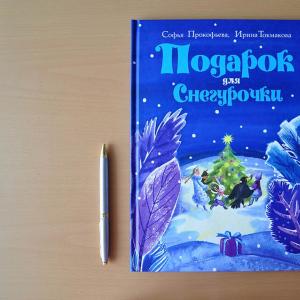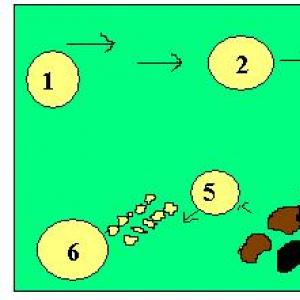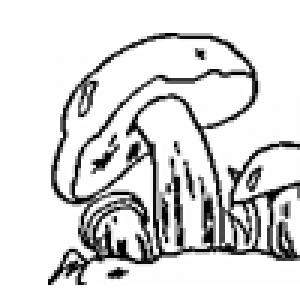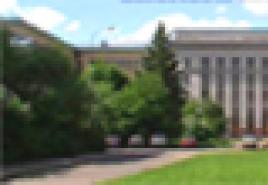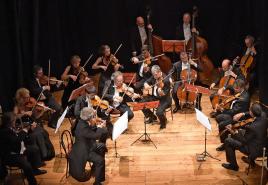The problem of the teacher's role in human life. (USE in Russian)
Tulmenkova Anastasia Alexandrovna,
Applicant of the Krasnoyarsk State Pedagogical University. V. P. Astafieva.
The role of the teacher in the life of man
Tyul'menkova A. A.
This article will focus on teachers, teachers, educators, mentors and coaches, that is, those who rightfully deserve to bear the noble title of a teacher. The article is devoted to the description and disclosure of the role of a teacher in a person's life, in the formation of his personal qualities that introduce the student to science, satisfy basic needs, the joys of discovery, his own successes and achievements.
Keywords:teacher, profession teacher, role of teacher.
In this article, we will focus on teachers, teachers, educators, mentors and trainers, i.e. those who rightfully deserve to wear the noble title of teachers. The article is devoted to the description and the disclosure of the teacher's role in human life, in the formation of his personal qualities, which educate the student to science, meet basic needs, joy of discoveries own fortunes and achievements.
keywords:teacher, profession teacher, role of the teacher.
The profession of a teacher cannot be written off in time. From time immemorial and until the end of time, teachers are in demand in any society, because it is they who form the social environment, they prepare the forge of personnel, they adapt our future generation to life century after century.
Any person feels the need to search for knowledge, to comprehend the world, and, as a result, the need to follow a mentor and teacher, an adult and wise one, who helps to understand the difficult issues of life. It is customary for the people to say: "Whoever enters the world of knowledge alone, he alone will come out of there." It is known that from birth, a person perceives the surrounding reality not on the basis of his own experience, which he actually does not have in infancy, but under the influence of adults who have prestige and competence. And the teacher is actually called upon to satisfy a person's desire for knowledge, as well as to motivate him on this path as much as possible.
In everyday life, it is customary to consider a teacher not only the one who taught literacy, arithmetic, writing and reading; in fact, any person who has taught another any kind of skill is rightfully sublimely called a teacher. But if we are talking about professional teachers, teachers, educators, mentors and coaches, then we can say with confidence that a gifted and talented person rightfully deserves to bear the noble title of a teacher.
The task of the teacher is to be able to introduce the student to science, to satisfy basic needs, that is, to organize joint experiences with him of the beauty of thought, surprise, the joy of discoveries, his own successes and achievements. Only he can achieve this who has been able to keep the living energy of the child in himself and carry it through the routine of formal education and the difficulties of adult survival. Dmitry Ivanovich Pisarev said: “In education, the whole point is who the educator is.”
Each of us had our first teacher, one who in one way or another influenced the formation of our personality, our process of improvement. And it is important to remember at the same time that in addition to the general educational development of the individual, the teacher takes responsibility for his spiritual and moral education.
The main function of the teacher, most likely, is precisely this - in the formation of the spiritual world of young people, in determining the rules and beliefs of the community of mankind as a whole. A teacher from an early age instills the concepts of universal human values, rights, aesthetics and culture, brings up the right ideas about the world, teaches to regulate one's behavior in accordance with these ideas, teaches to live according to the principles of kindness and mercy, tolerance, respect and humanity towards others.
A German teacher who lived in the mid-1800s, Adolf Diesterweg, based on personal experience, argued that “the most important phenomenon in the school, the most instructive subject, the most living example for the student is the teacher himself. He is the personified method of teaching, the very embodiment of the principle of education.
Particularly noteworthy is the role of the teacher in the formation of attitudes towards oneself, in the formation of personal self-esteem. And despite the fact that human development occurs throughout life, the foundations of human socialization occur precisely in preschool and primary school age. The teacher must skillfully show rationalization and sympathy, be able to equalize the cultural and educational opportunities of each child individually. But it is a colossal work.
The elementary school period is a period of intensive growth, strengthening of the body, and the development of all its main functions. It is at school that children first find themselves in various conflict situations, and here the authority of the teacher and his personal example and positive influence help the child correct and overcome the difficulties of communicating with peers in time, thereby raising the status of the child.
Adolescence for educational processes can be more difficult for the teacher. At this age, young people have an early sense of adulthood, causing a desire to get rid of the guardianship of elders (both parents and teachers), and hence the well-known negativism in behavior, resistance to educational influences, a tendency to contradiction, defending one's rights and a desire to act in one's own way. And here it is very important for a teacher to be able to achieve trust and respect among high school students in order to truly become their spiritual mentor, help them understand the issues that concern them, and determine their place in life.
It is impossible to ignore the attitude of the student to the teacher, because if we take into account the huge role that the teacher plays in a person's life, then the student should remain grateful to the teacher for life.
The teacher in a person's life, in his formation performs a huge function. This is the one who contributes to the transformation of the child into a full-fledged harmonious personality. The profession of a teacher is, of course, difficult, because it is very difficult to awaken in children the desire to work on themselves and educate the responsiveness of the heart.
Parents, trusting their child, as a rule, to an unfamiliar teacher at school, should approach the choice of the first teacher as responsibly as possible. This is a key, fundamentally important point. Apparently, it is even better to introduce the child to the future teacher in advance, so that, if possible, it can be determined whether contact will be established between them, whether an internal connection will be established, whether the temperament is the same, because the first impression is the most important, it forms the subsequent perception of the entire learning process. .
The child's first teacher must be impeccable in everything, as according to Chekhov: "... and soul, and clothes, and thoughts ...". To form an aesthetic perception, a classy lady should be pleasing to the eye, not like a gray rusk, in a boring brown-black, and not like a clown at a masquerade! In clothes, everything should be in moderation: modest and beautiful. Her voice should pleasantly please the ear, intonations should not lull, but interest. Believe me, listening to a squeaky voice resembling a mosquito squeak is not only useless for learning the material, but also harmful for the formation of hearing.
It is necessary for a teacher to have such qualities as understanding, unconditional support, love for students, the ability to take risks with wisdom in piquant moments, timely equanimity and, of course, creativity in everything! No less important is the self-confidence and professionalism of the teacher, that is, his ability to convey knowledge, convey it in a clear and easily digestible form, for this you need to love your subject, at least. Probably, the teacher himself must constantly learn, otherwise how can a person who does not know how to do this himself teach children?
We are talking about the Teacher with a capital letter, not so much as a person who teaches a certain subject, but precisely about the Teacher who is the leading guide for children. A harmonious and lively, self-improving teacher who does not treat children as an annoying duty is a reliable foundation for our future generation. As young people say today, open - minded: free, open-minded, open.
Leo Nikolayevich Tolstoy wrote in one of his works: “If a teacher has only love for work, he will be a good teacher. If the teacher has only love for the student, like a father, a mother, he will be better than the teacher who has read all the books, but has no love either for the work or for the students. If a teacher combines love for work and for students, he is a perfect teacher.
Literature
1. Ageeva I. A. Successful teacher: training and correctional programs [text] / I. A. Ageeva. - St. Petersburg: Speech, 2007. - 208 p.
2. Klimov E. A. Psychology of professional self-determination [text] / E. A. Klimov. - M., 1996. - 420 p.
3. Mitina L.M. Psychology of work and professional development of a teacher [text]. M.: Academy, 2004.
4. Novikov A. M. Foundations of Pedagogy. A guide for authors of textbooks and teachers [text] / A. M. Novikov - M .: Egves, 2010.
5. Pryazhnikov N.S. Psychology of labor and human dignity [text]: textbook. allowance / N. S. Pryazhnikov, E. Yu. Pryazhnikova. – M.: Academy, 2003. – 480 p.
6. Rezapkina GV Psychological portrait of a teacher: the experience of self-diagnosis [text] // Practice of administrative work at school. – 2006.
7. Robotova A. S., Shapashnikova I. G. Profession teacher [text]: Textbook for profile and vocational guidance and profile education of schoolchildren. – M.: Academy, 2005. – 365 p.
8. Teacher and student: the possibility of dialogue and understanding [text]. – Volume 1 / Comp. E. A. Genike, E. A. Trifonova, Ed. Ed. L. I. Semina. - M .: Publishing house "Bonfi", 2002.
9. Shingaev S. Psychological portrait of a teacher: a view from the point of view of social health [text] // Educational Psychology. - 2009. - No. 10.
What role does a teacher play in a person's life? What memory does he leave in the hearts of his disciples? It is these questions that arise when reading the text of Anatoly Georgievich Aleksin.
Revealing the problem of the role of a teacher in a person's life and memory about him, the author relies on his own memories. We get acquainted with the teacher of literature, Maria Fedorovna Smirnova, who not only “passed through” literature, but introduced children to great works. The narrator calls the lessons of his beloved teacher the lessons of humanism and love. With regret, remorse and a sense of guilt, the narrator recalls how one day he did not fulfill the request of the teacher to meet without fail.
Everyday bustle prevented him from fulfilling his promise. When there was free time, the narrator called the teacher, but she was no longer there. With bitterness and pain, the hero asks himself the question: why do we sometimes put off what concerns the closest, most beloved.
The author's position is as follows: the role of a teacher in the life of every person is great. A teacher is a mentor, a caring assistant who supports his students. A teacher who gave all his strength to his students evokes feelings of gratitude, respect and sincere love.
Let's take a literary argument. Recall Vasil Bykov's story "Obelisk", which depicts two teachers. One of them - Ales Ivanovich Moroz - opened a school in Western Belarus in a small town called Seltso in 1939. He not only gave children knowledge, but also brought up in them such qualities as diligence, compassion for all living things, honesty, decency. Even during his illness, he continued to teach and educate children - he read Leo Tolstoy's novel "War and Peace" to them. During the war years, during the occupation, Frost continued to teach, although many considered it a betrayal, but the teacher took a firm position: he did not humanize these guys for two years, so that later the Germans would dehumanize them. Ales Moroz accomplished a feat, he put his life on the block for the sake of his children. When the students were arrested, accusing them of subversive activities, Moroz voluntarily came to the commandant's office, surrendered to the enemies in order to be with the children at the last minute in order to support them morally.
The second teacher is a student of Ales Moroz, whom he saved from death - Pavel Miklashevich, who became a teacher after the war and continued the work of his teacher. Pavel Miklashevich understood better than others that the most significant thing in life is reasonable human kindness and concern for others - people close or even distant to you who need this care of yours. Pavel died early - at the age of 34, but left behind a grateful memory. Miklashevich made the meaning of his life not only the continuation of the work of his teacher, but also the preservation of his memory. He ensured that the name of Ales Ivanovich Moroz was engraved on the obelisk, where the names of his dead students were already listed.
Let's look at another example. In the autobiographical story of V.P. Astafyev "The Last Bow" there is a chapter "A photograph in which I am not." The events take place in the Siberian village of Ovsyanka on the banks of the Yenisei River in the pre-war thirties of the twentieth century. The author introduces us to rural teachers - husband and wife. Their names were the same - Evgeny Nikolaevich and Evgenia Nikolaevna, and they looked alike, like brother and sister. They were 25 years old, and they also had a baby. In the countryside, teachers were respected for their politeness and responsiveness. They greeted everyone the same way, never refused a request to write a paper, led an active social life, were ringleaders in a village club, put on performances. The teacher went to the city, and pencils, notebooks, paints, textbooks appeared at the school. He invited a photographer from the city, which was an unprecedentedly important event for the village. He visited a sick student - the narrator and talked for a long time with the grandmother of the hero. And in the spring, the teacher took the students through the forest, told them about the trees and grasses, and saved the students from the snake, although he had never seen a snake before.
Let's summarize. We have proven that the profession of a teacher is one of the noblest on earth, because teachers sow "reasonable, good, eternal".
The role of the first teacher in human life
The profession of a teacher cannot be written off in time. From time immemorial and until the end of time, teachers are in demand in any society, because it is they who form the social environment, they prepare the forge of personnel, they adapt our future generation to life century after century.
Any person feels the need to seek knowledge, to comprehend the world, and, as a result, the need to follow a mentor and teacher, an adult and wise one, who helps to understand the difficult issues of life. It is customary for the people to say: "Whoever enters the world of knowledge alone, he alone will come out of there." It is known that from birth, a person perceives the surrounding reality not on the basis of his own experience, which he actually does not have in infancy, but under the influence of adults who have prestige and competence. And the teacher is actually called upon to satisfy a person's desire for knowledge, as well as to motivate him on this path as much as possible.
In everyday life, it is customary to consider a teacher not only the one who taught literacy, arithmetic, writing and reading; in fact, any person who has taught another any kind of skill is rightfully sublimely called a teacher. But if we are talking about professional teachers, teachers, educators, mentors and coaches, then we can say with confidence that a gifted and talented person rightfully deserves to bear the noble title of a teacher.
The task of the teacher is to be able to introduce the student to science, to satisfy basic needs, that is, to organize joint experiences with him of the beauty of thought, surprise, the joy of discoveries, his own successes and achievements. Only he can achieve this who has been able to keep the living energy of the child in himself and carry it through the routine of formal education and the difficulties of adult survival. Dmitry Ivanovich Pisarev said: “In education, the whole point is who the educator is.”
Each of us had ourfirst teacher , one that in one way or another influenced the formation of our personality, our process of improvement. And it is important to remember at the same time that in addition to the general educational development of the individual, the teacher takes responsibility for his spiritual and moral education.
The main function of the teacher, most likely, is precisely this - in the formation of the spiritual world of young people, in determining the rules and beliefs of the community of mankind as a whole. A teacher from an early age instills the concepts of universal human values, rights, aesthetics and culture, brings up the right ideas about the world, teaches to regulate one's behavior in accordance with these ideas, teaches to live according to the principles of kindness and mercy, tolerance, respect and humanity towards others.
A German teacher who lived in the mid-1800s, Adolf Diesterweg, based on personal experience, argued that “the most important phenomenon in the school, the most instructive subject, the most living example for the student is the teacher himself. He is the personified method of teaching, the very embodiment of the principle of education.
Particularly noteworthy is the role of the teacher in the formation of attitudes towards oneself, in the formation of personal self-esteem. And despite the fact that human development occurs throughout life, the foundations of human socialization occur precisely inpreschool and primary school age. The teacher must skillfully show rationalization and sympathy, be able to equalize the cultural and educational opportunities of each child individually. But it is a colossal work.
Primary school period - This is a period of intensive growth, strengthening of the body, and the development of all its main functions. It is at school that children first find themselves in various conflict situations, and here the authority of the teacher and his personal example and positive influence help the child correct and overcome the difficulties of communicating with peers in time, thereby raising the status of the child.
Adolescence for teaching and educational processes can be more difficult for the teacher. At this age, young people have an early sense of adulthood, causing a desire to get rid of the guardianship of elders (both parents and teachers), and hence the well-known negativism in behavior, resistance to educational influences, a tendency to contradiction, defending one's rights and a desire to act in one's own way. And here it is very important for a teacher to be able to achieve trust and respect among high school students in order to truly become their spiritual mentor, help them understand the issues that concern them, and determine their place in life.
It is impossible to ignore the attitude of the student to the teacher, because if we take into account the huge role that the teacher plays in a person's life, then the student should remain grateful to the teacher for life.
The teacher in a person's life, in his formation performs a huge function. This is the one who contributes to the transformation of the child into a full-fledged harmonious personality. The profession of a teacher is, of course, difficult, because it is very difficult to awaken in children the desire to work on themselves and educate the responsiveness of the heart.
Parents, trusting their child, as a rule, to an unfamiliar teacher at school, should take the most responsible approachto the choice of the first teacher. This is a key, fundamentally important point. Apparently, it is even better to introduce the child to the future teacher in advance, so that, if possible, it can be determined whether contact will be established between them, whether an internal connection will be established, whether the temperament is the same, because the first impression is the most important, it forms the subsequent perception of the entire learning process. .
Child's first teacher must be impeccable in everything, as according to Chekhov: "... and the soul, and clothes, and thoughts ...". To form an aesthetic perception, a classy lady should be pleasing to the eye, not like a gray rusk, in a boring brown-black, and not like a clown at a masquerade! In clothes, everything should be in moderation: modest and beautiful. Her voice should pleasantly please the ear, intonations should not lull, but interest. Believe me, listening to a squeaky voice resembling a mosquito squeak is not only useless for learning the material, but also harmful for the formation of hearing.
It is necessary for a teacher to have such qualities as understanding, unconditional support, love for students, the ability to take risks with wisdom in piquant moments, timely equanimity and, of course, creativity in everything! No less important is the self-confidence and professionalism of the teacher, that is, his ability to convey knowledge, convey it in a clear and easily digestible form, for this you need to love your subject, at least. Probably, the teacher himself must constantly learn, otherwise how can a person who does not know how to do this himself teach children?
We are talking about the Teacher with a capital letter, not so much as a person who teaches a certain subject, but precisely about the Teacher who is the leading guide for children. A harmonious and lively, self-improving teacher who does not treat children as an annoying duty is a reliable foundation for our future generation. As young people say today, open - minded: free, open-minded, open.
Leo Nikolayevich Tolstoy wrote in one of his works: “If a teacher has only love for work, he will be a good teacher. If the teacher has only love for the student, like a father, a mother, he will be better than the teacher who has read all the books, but has no love either for the work or for the students. If a teacher combines love for work and for students, he is a perfect teacher.
Literature
1. Ageeva I. A. Successful teacher: training and correctional programs [text]/ I. A. Ageeva. - St. Petersburg: Speech, 2007. - 208 p.
2. Klimov E. A. Psychology of professional self-determination [text] / E. A. Klimov. - M., 1996. - 420 p.
3. Mitina L. M. Psychology of work and professional development of the teacher [text]. M.: Academy, 2004.
4. Novikov A. M. Foundations of Pedagogy. A guide for textbook authors and teachers [text]/ A. M. Novikov - M.: Egves, 2010.
5 Pryazhnikov N. S. Psychology of labor and human dignity [text]: textbook / N. S. Pryazhnikov, E. Yu. Pryazhnikova. – M.: Academy, 2003. – 480 p.
Essay text:
Teacher... Teacher... often saying these words, we do not think what role they play in our difficult life.
The teaching profession links together the ability to communicate, understanding and knowledge of a person.
From an early age, a person learns to cognize the world around him. And in order to understand, realize and live in it correctly, he needs smart and understanding people who fully give their skill, diligence and care.
They must guide the little man on the right path, they must help him not to get lost on the roads of life, they must educate him. These are the people that teachers are. They teach the child not only public things, but also teach to understand himself, his soul.
Each person is a small part of a large society in which we live. And in order to be able to live in this society, a person must be sufficiently educated.
Naturally, the teacher teaches not only the knowledge passed down from generation to generation, but also the understanding of the need for this subject. After all, if the teacher does not prove how much a person needs this or that subject, the child will not have the desire to study it.
Consequently, the role of the teacher in the education and upbringing of a person is undoubtedly enormous. Here we can cite as an example the words of Belinsky: Happy are those young people who, under the guidance of experienced scientists, virtuous and educated mentors, improve themselves and prepare themselves for a dangerous, albeit very long, journey along the labor road of life.
The ability to prove the need for a subject is as great as the teacher's understanding of each student. From these small theses, a complex and versatile personality of the teacher is formed. He must respect every little person, understand that a child is an integral person who has the same rights as an adult member of society.
One of the ancient wisdom says: A child is a vessel given to us, adults, for safekeeping. Consequently, every teacher must understand what burden of responsibility he bears for every small part of a large society. A teacher, like a doctor, is a calling, a talent given from above.
Raising a personality, the teacher should, I think, remember one postulate: Do no harm! The formation of a free, intelligent, fair, hardworking personality is a complex process. But people who truly love children and are sincerely passionate about their activities achieve their goals and remain in the hearts of students for life.
The rights to the essay "The role of the teacher in the process of education and upbringing" belong to its author. When citing material, it is necessary to indicate a hyperlink to
Everyone has their own direction in life. For some, this is a great athlete or politician, and for someone, a beloved teacher can become one.
The history of the profession
One of the ancient specialties, if singled out from the general list of professions, can safely be called a teacher. The description of its origin stretches from the time of the slave system. In countries such as Babylon, Egypt, Phenicia, and Assyria, agriculture was based on artificial irrigation. Rivers such as the Tigris, Nile and Euphrates constantly overflowed their banks. At that time, people appeared who followed these operations and shared their experience, but they were extremely strict about this. Cities were built, hydraulic channels were built, sprouts of geometry, arithmetic, medicine and astronomy appeared. But this information was kept by the priests in great secrecy, passed down from generation to generation. Despite this, already in the time of the priests there were special institutions where teachers were people who belonged to a privileged caste. Egyptian sources date the appearance of the first schools to 2500 BC. Many writers were teachers at some point in time. G. R. Derzhavin and I. A. Krylov taught the children of Prince Golitsyn for many years. N. V. Gogol and I. V. Turgenev taught geography, history and literacy. Other names can be included in the list - A. S. Makarenko, A. M. Gorky, etc. The role of a teacher in a person’s life is enormous, since with his help a social environment is formed, a forge of personnel is prepared and the younger generation adapts to life. Each subject is capable of feeling a lack of knowledge. As a result, he is ready to follow a teacher who is wise, mature and helps to understand complex life issues.
Teacher Functions

- Pedagogical. Train, improve and develop the student. The main thing in this business is joint effectiveness.
- The design function is the choice of a way and means to achieve the result. Planning, forecasting and testing are the main indicators.
- Organizational. Manage the class - maintain a business-like learning atmosphere, so that there is an interest in working actively and not violating discipline.
- Informational. It is impossible to underestimate the role of the teacher in this, since the flourishing and power of our country largely depend on this. The main thing for students is almost always the teacher.
- Corrective, evaluation and control - to determine the goal, plan actions, evaluate the outcome of personal work.
- The social role of a teacher in a person's life is to develop trends in the team, prepare the younger generation for life, and solve modern problems.
Requirements for a teacher
"Cultural students are where there is a decent teacher nearby." WITH.)
The teacher owns special qualities. And we must understand that this is only a small part of his pedagogical work. Rational technology is the first aspect of his activity, while art can be attributed to the second half.
The first requirement is:

- pedagogical ability. It can be described as a love for children, which combines high professionalism in working with students and enjoying communication with students.
- Humanism. Treat a person as the most important dignity on earth. Such an attitude implies respect for the individual, attention to the opinions of others, to the state of individual improvement and initiative.
- Have tact. Pedagogical delicacy is building the right relationships with people, having the feeling and culture of a mentor. Personal qualities in this case are inseparable from professional ones. Very important are the character traits of a teacher who teaches not only biology and geography, but also explains how to be the master of your word and have your own opinion.
- The teacher must have such a feature as scientific enthusiasm. A professional teacher forms love and respect for his discipline, teaches to see the relationship between science and human development. He performs the function of a conductor and is obliged to prove the importance of science, understanding each person and forming her moral views and foundations. Such an activity requires absolute dedication and constant personal development.
The relationship between teacher and student
The relationship "teacher and student" is characterized as a joint activity in the plane of education. The multifunctional network of interactions is divided into 4 lines:
- Teacher-student (students).
- Student-student.
- Collaboration of students in groups.
- Teacher-teaching team.
The relationship "teacher and student" plays an important role in pedagogical cooperation. High school students can consciously decide in "love" to Often a favorite teacher appears during this period of study. The student and mentor can be two subjects that are companions and represent the union of an experienced person with an inexperienced one (a combination of broad thinking and boundless imagination).

Age categories of adolescents influence the form of cooperation. So, for younger schoolchildren and children who go to the garden, a playful form is characteristic. She subsequently goes into training. High school students need motivation. The teacher in the dialogue must convince them of the importance of mathematics, chemistry, physics and others. Teacher and student should quickly find a common interest. Something that you can cling to and start a dialogue or even knowledge. At any age, the role of a teacher in a person's life is one of the leading ones.
Main indicators of joint activity
With a harmonious relationship between teacher and student, one can observe:
- Better assimilation of new material.
- The increase in cognitive activity and creative independence of students.
- Getting great pleasure from the lessons and being in an educational institution.
- The acquisition of social skills.
For the youngest

Primary students consider the classroom a social environment, because they have not yet been in such an environment. They begin to communicate a lot with their peers, open the first ways of knowledge. At the moment when the child takes on a new activity, such as studying, he must find a "older comrade" - a mentor who will guide him further. The role of a teacher in a child's life is invaluable: he helps children establish relationships in a team, that is, in the classroom, is able to arouse a child's interest in studying, solving simple problems or reading. It should be understood that it is the initial link that is the foundation for the further work of the entire education system.
Favorite teacher

Each person in his life can name at least one teacher who he liked the most, while the personality of the teacher is very important. For some, this is their first mentor to quickly build trust. and gratitude remains to those teachers who saved and multiplied faith, warmth, love for life in our souls. However, a favorite teacher can appear at any age, and the criteria for selecting him will be different. So, at the age of 15-16, students primarily appreciate the professionalism of the teacher, his morality and how he treats other teenagers and how he behaves outside the educational environment.

